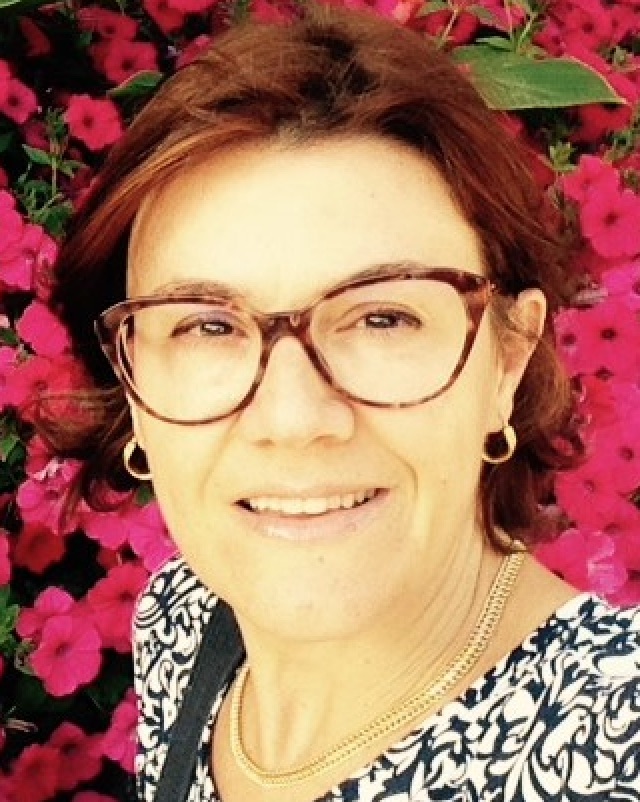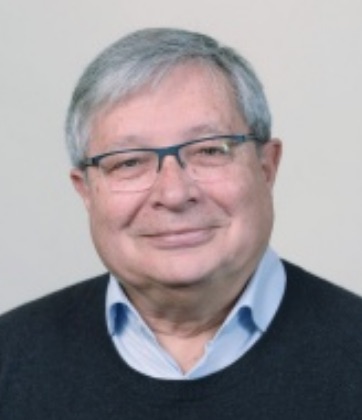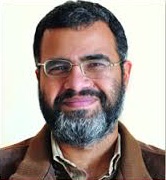PANEL
COVID-19 Mobile Contact Tracing Apps (MCTA): A Digital Vaccine or a Privacy Demolition? Panel Questions
CONFERENCE DAY 2: July 2nd
| PARIS (CEST) | Brisbane (GMT+10) | Beijing (GMT+8) | New York (EDT) | Seattle (PDT) |
| 16:00 - 17:00 | 0:00(+1)-1:00(+1) | 22:00 - 23:00 | 10:00 - 11:00 | 7:00 - 8:00 |
Session chairs: Demetrios Zeinalipour-Yazti (University of Cyprus), Christophe Claramunt (French Naval Academy)
Abstract
The COVID-19 global pandemic emerged in the late 2019 causing so far a massive global health disruption with many fatalities and huge economy impact, enforcing most if not all governments to a global lockdown. Besides the battle on the medical front-line, governments and the industry also massively explored the deployment of information and communication technologies to track and curb the spread of the virus. On the front-line of these efforts, have been the so-called Mobile Contact Tracing Applications (MCTA). These refer to mobile apps that exploit the rich ecosystem of mobile sensors (e.g., location, proximity) as well as social networks to facilitate the process of identification of persons who may have been previously into contact with a covid infected person and subsequent collection of further information about these contacts. Although MCTA can in theory help governments fight the rapid spread of diseases like COVID-19, there are important privacy considerations and many claim that these technologies will put in place a massive global surveillance infrastructure that will survive even when a vaccine for the COVID-19 disease has been found. This panel aims to discuss the major challenges and open topics surrounding MCTA. The panelists are expected to bring wealth of experience and vision from the academic, governmental and industrial sector to answer a set of challenging questions that are currently open to public debate as well as the global benefits one can expect when fighting the COVID-19 spread.
Panelists
- Vania Bogorny (Federal University of Santa Catarina, Brazil)
 Vania Bogorny is professor at the Department of Informatics and Statistics of Universidade Federal de Santa Catarina (UFSC), and is currently the head of the UFSC Computer Science Graduate Program. She holds a Ph.D. (2006) and a master's degree (2001) in Computer Science from Universidade Federal do Rio Grande do Sul (UFRGS). In 2007 she received the best Ph.D. thesis award from the Brazilian Computer Society. She holds a CNPq Research Productivity Scholarship since 2008, and since 2010 she has served as a reviewer for many projects and international journals as DMKD, TKDE, IJGIS, TGIS, JVLDB, etc. She has been a visiting professor at INRIA Sophia Antipolis, France (2014); at CNR / Italy (2013 and 2017 - SOBIGDATA.EU project), Ca´Foscari University in Venice / Italy (2013) and at the University of Piraeus / Greece (2015). Since 2011 she is the UFSC coordinator of European FP7 and H2020 research projects (SEEK [FP7] and MASTER [H2020]), sponsored by the European Union. Her research interests are mobile data management, machine learning algorithms, and similarity analysis.
Vania Bogorny is professor at the Department of Informatics and Statistics of Universidade Federal de Santa Catarina (UFSC), and is currently the head of the UFSC Computer Science Graduate Program. She holds a Ph.D. (2006) and a master's degree (2001) in Computer Science from Universidade Federal do Rio Grande do Sul (UFRGS). In 2007 she received the best Ph.D. thesis award from the Brazilian Computer Society. She holds a CNPq Research Productivity Scholarship since 2008, and since 2010 she has served as a reviewer for many projects and international journals as DMKD, TKDE, IJGIS, TGIS, JVLDB, etc. She has been a visiting professor at INRIA Sophia Antipolis, France (2014); at CNR / Italy (2013 and 2017 - SOBIGDATA.EU project), Ca´Foscari University in Venice / Italy (2013) and at the University of Piraeus / Greece (2015). Since 2011 she is the UFSC coordinator of European FP7 and H2020 research projects (SEEK [FP7] and MASTER [H2020]), sponsored by the European Union. Her research interests are mobile data management, machine learning algorithms, and similarity analysis. - Yannick Léo (Emerton Data, France)
 Yannick Léo is data scientist and strategy consultant at Emerton Data. He holds a Ph.D. (2016) and a master’s degree (2013) in Computer Science from Ecole Normale Supérieure de Lyon. His main results are in temporal networks, large graphs, mobility analytics, sociology and applied machine learning from the study of geolocated telco and bank datasets. He is the founder of social network Adeline in 2014 and joined the data group of Sodexo in 2017. He has strong expertise in developing data & AI products, implementing digital transformation and strategy consulting. From 2019, at Emerton Data, his main research topics are responsible AI, explainable AI and fairness. He actively supports INRIA on projects Face Au Virus to build a data-driven regional model of the Covid spread and SafeCityMap to estimate the risk of spreading in each area of a city such as Paris.
Yannick Léo is data scientist and strategy consultant at Emerton Data. He holds a Ph.D. (2016) and a master’s degree (2013) in Computer Science from Ecole Normale Supérieure de Lyon. His main results are in temporal networks, large graphs, mobility analytics, sociology and applied machine learning from the study of geolocated telco and bank datasets. He is the founder of social network Adeline in 2014 and joined the data group of Sodexo in 2017. He has strong expertise in developing data & AI products, implementing digital transformation and strategy consulting. From 2019, at Emerton Data, his main research topics are responsible AI, explainable AI and fairness. He actively supports INRIA on projects Face Au Virus to build a data-driven regional model of the Covid spread and SafeCityMap to estimate the risk of spreading in each area of a city such as Paris. - Stan Matwin (Dalhousie University, Canada)
 Stan Matwin is the Director of the Institute for Big Data Analytics at Dalhousie University, Halifax, Nova Scotia, Canada, where he is a Professor and Canada Research Chair. He is also a Distinguished Professor at the University of Ottawa, and a State Professor at the Institute for Computer Science of the Polish Academy of Sciences. His main research results are in text mining, mobility analytics, applications of machine learning, and in data privacy. Stan was the President of the Canadian AI Association (CSCSI) from 1994 to 1996. He holds the titles of Fellow of the European Coordinating Committee on AI, and Fellow of the Canadian AI Association (CAIAC). Recipient of the Lifetime Achievement Award of CAIAC. He was the General Chair of KDD 2017 in Halifax, Canada.
Stan Matwin is the Director of the Institute for Big Data Analytics at Dalhousie University, Halifax, Nova Scotia, Canada, where he is a Professor and Canada Research Chair. He is also a Distinguished Professor at the University of Ottawa, and a State Professor at the Institute for Computer Science of the Polish Academy of Sciences. His main research results are in text mining, mobility analytics, applications of machine learning, and in data privacy. Stan was the President of the Canadian AI Association (CSCSI) from 1994 to 1996. He holds the titles of Fellow of the European Coordinating Committee on AI, and Fellow of the Canadian AI Association (CAIAC). Recipient of the Lifetime Achievement Award of CAIAC. He was the General Chair of KDD 2017 in Halifax, Canada. - Thierry Roussel (Alstom SA, France)
 Thierry Roussel is a Director of the Digital Factory in Alstom, Paris, France. From 2018, he builds a new team in Bangalore, India, focusing on software development on advanced technologies including mobile applications, Industrial Internet of Things, Indoor localization, statistical analytics and image/video/3D model analytics. He works to elaborate and implement Operational Technologies in Alstom through Factory 4.0, Depot 4.0, Office 4.0 initiatives. He is 20+ years in IT and got experiences in software R&D, datacenter & network infrastructure, IT merge/acquisition/divestiture, program management, consulting and sales.
Thierry Roussel is a Director of the Digital Factory in Alstom, Paris, France. From 2018, he builds a new team in Bangalore, India, focusing on software development on advanced technologies including mobile applications, Industrial Internet of Things, Indoor localization, statistical analytics and image/video/3D model analytics. He works to elaborate and implement Operational Technologies in Alstom through Factory 4.0, Depot 4.0, Office 4.0 initiatives. He is 20+ years in IT and got experiences in software R&D, datacenter & network infrastructure, IT merge/acquisition/divestiture, program management, consulting and sales. - Moustafa Youssef (Alexandria University, Egypt)
 Moustafa Youssef is a professor at Alexandria University and founder & director of the Wireless Research Center of Excellence, Egypt. His research interests include mobile wireless networks, mobile computing, location determination technologies, pervasive computing, and network security. He is an Associate Editor for IEEE TMC and ACM TSAS, served as the Lead Guest Editor of the IEEE Computer Special Issue on Transformative Technologies and an Area Editor of ACM MC2R as well as on the organizing and technical committees of numerous prestigious conferences. He is the recipient of the 2003 University of Maryland Invention of the Year award, the 2010 TWAS-AAS-Microsoft Award for Young Scientists, the 2013 and 2014 COMESA Innovation Award, the 2013 ACM SIGSpatial GIS Conference Best Paper Award, the 2017 Egyptian State Award, multiple Google Research Awards, among many others. He is also an IEEE and ACM Fellow.
Moustafa Youssef is a professor at Alexandria University and founder & director of the Wireless Research Center of Excellence, Egypt. His research interests include mobile wireless networks, mobile computing, location determination technologies, pervasive computing, and network security. He is an Associate Editor for IEEE TMC and ACM TSAS, served as the Lead Guest Editor of the IEEE Computer Special Issue on Transformative Technologies and an Area Editor of ACM MC2R as well as on the organizing and technical committees of numerous prestigious conferences. He is the recipient of the 2003 University of Maryland Invention of the Year award, the 2010 TWAS-AAS-Microsoft Award for Young Scientists, the 2013 and 2014 COMESA Innovation Award, the 2013 ACM SIGSpatial GIS Conference Best Paper Award, the 2017 Egyptian State Award, multiple Google Research Awards, among many others. He is also an IEEE and ACM Fellow.
Copyright ©2019 All rights reserved